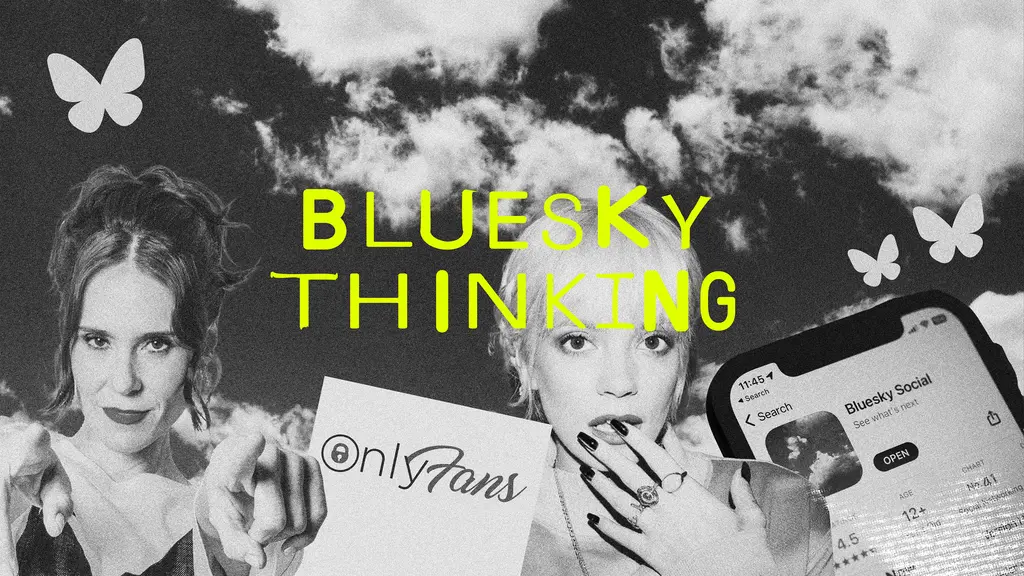Why men are experts and women are confessional
- Text by Dawn Foster
- Photography by Instagram / @carolinecalloway

Where are the Yale plates? Along with seemingly half the internet, I read the essay by Natalie Beach on her time ghostwriting for Instagram influencer Caroline Calloway. Calloway had been forewarned of the publication of the piece, and used her Instagram account to criticise it before reading it, stating she had lied about the disappearance of some Yale plates Beach had gifted her because she was young.
The article was pre-hyped, but reading it made me and many others feel uneasy. The public airing of personal gripes about a historical friendship felt deeply intrusive, rubbernecking the private issues of the two women. The growth of Calloway as a brand on Instagram, and the essay Beach published are both artefacts in a media that treats young women very differently to everyone else: approaching editors, young women are often expected to plunder their personal life when writing. Starting out, many women (myself included) are asked what personal link they have to the subject they have pitched. Men pitching do not find the same issue, finding their pitches accepted or rejected without being asked if they have experienced the issues they wish to write on. Men are taken as experts: young women are expected to be confessional.
The essay aired many of Beach’s grievances with Calloway. Both seemed to have suffered differently in the years they were friends. The class difference between Beach and Calloway was clear: Beach’s attempts to succeed as a writer were scuppered by troubles with cash and not having a family who could bail her out when she found herself homeless. Calloway had a safety net of cash from her family, but clearly suffered when studying at Cambridge, hiding her reality from her Instagram followers.
Influencers and public figures are expected to share their lives with their public, with their entire existence treated as a commodity to be consumed. We feel we know influencers we follow, knowing that the images and stories told are carefully chosen and constructed. A huge number are young women, and it remains a new field and style. Their public life is treated as a genuine creation, offered to the public for consumption. We know the constructed lives are fake, and only recently subject to laws on advertising. Finding out that Calloway may have created a false appearance and story of her life is not remotely surprising.
Reading about the fall out of their friendship feeds that hunger for conflict: Natalie clearly suffered in the years the pair were friends and felt she had been wronged, and was treated poorly by everyone she met. The media still treats young women as childlike, and expects us to write about our lives, toss away our privacy, and plunder our experiences for writing material. Many editors trust us only to write about ourselves, whereas men can write about anything they fancy, rarely quizzed on the origin of their purported expertise. Women are treated as capable of gossip and writing about their personal experiences and little else.
The catastrophic fallout of their relationship has been consumed with glee after weeks of Calloway trailing the supposed betrayal on Instagram. Finishing the essay, the only feeling I experienced was a persistent hope that both women found help and happiness. The media will continue to watch Calloway closely, and hopefully Beach can find more outlets to write in, and submit articles that aren’t about her life and experiences. Some of the response to the clamour has been misogynist in its approach. Both are treated as fools for their behaviour and decisions, and the public betrayal has been infantilised. It is not remotely edifying to read and watch, but it is also not surprising: it remains a story of a media that fully consumes women and chews them up before spitting them out. The pair have both suffered greatly: hopefully they can be helped, albeit privately.
Follow Dawn Foster on Twitter.
Enjoyed this article? Like Huck on Facebook or follow us on Twitter.
You might like

Riot grrrl is back. Do we need it more than ever?
Femme punk forever — With social media driving renewed interest in the early ’90s movement, which blended feminist politics with brash punk music, we spoke to vanguards of the genre’s new wave, who are reviving its ethos as women’s rights come increasingly under attack.
Written by: Kurt Suchman

A new documentary spotlights Ecuador’s women surfers fighting climate change
Ceibo — Co-directed by Maddie Meddings and Lucy Small, the film focuses on the work and story of Pacha Light, a wave rider who lived off-grid before reconnecting with her country’s activist heritage.
Written by: Hannah Bentley

Have capitalists killed the internet?
At the start of the century, the internet was an escape from reality. Now, reality is an escape from the internet writes Huck Newsletter columnist Emma Garland.
Written by: Emma Garland

Laura Crane is waving goodbye to sexism in surfing
The first UK woman to surf the legendary big wave spot Nazarè, Crane is surfing the sea change in the sport and beyond.
Written by: Sam Haddad

The organisation levelling the playing field in the music industry
Founded in 2022, The Name Game is committed to helping female, non-binary and trans people navigate the industry.
Written by: Djené Kaba

In photos: Inmates of the oldest women’s prison in the USA
A new photobook, ‘Women Prisoner Polaroids’, revisits Jack Lueders-Booth’s seminal, humane portrait of women incarcerated in Massachusetts’ MCI Framingham.
Written by: Miss Rosen

